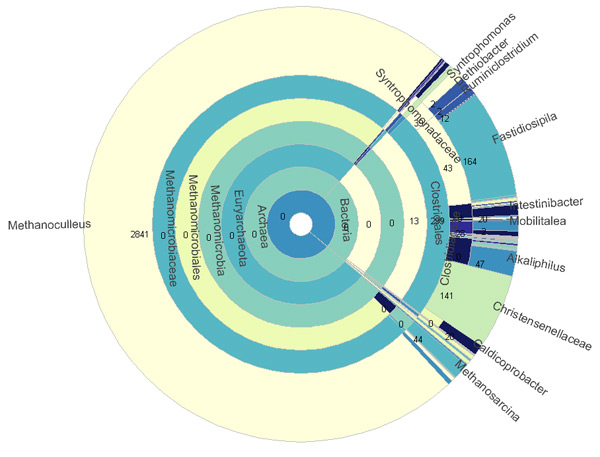The efficient industrial-scale deconstruction of biomass requires novel enzymes with higher productivity and lower cost. Metagenomic approaches to the analysis of complex microbial communities allow the targeted screening of enzymes with industrial applications in biofuel production, such as glycoside hydrolases. Furthermore, knowledge of how these microbial communities function is required to control them, and metagenomics is a key tool in their understanding. Metagenomic approaches allow comparative analyses between convergent microbial systems like biogas fermenters.
Case study
Biofilm-forming microbiota of a full-scale biogas reactor: reanalyzing EBI project ERP00369, sample ERR321004
Biogas is a flexible carrier of renewable energy, since methane can partly substitute fossil fuels for both heat and power generation and as fuel. Anaerobic digestion of biowastes in a full-scale biogas reactor was improved by the addition of straw, while the organic loading rate (OLR) could be increased in order to gain higher methane production. The composition of microbial community on straw as biofilm carrier and in fluid reactor content was analyzed by a 16S rDNA 454 pyrosequencing. Methanoculleus is responsible for the achievable higher biogas yield after straw addition.
Figure 1. Krona graph of bacterial taxons with the assigned number of reads

